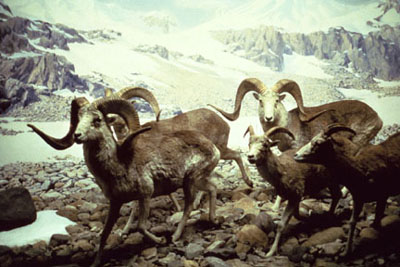

 The Accurate Reloading Forums
The Accurate Reloading Forums  THE ACCURATE RELOADING.COM FORUMS
THE ACCURATE RELOADING.COM FORUMS  Hunting
Hunting  Asian Hunting Forum
Asian Hunting Forum  Billy Arjan Singh- RIP
Billy Arjan Singh- RIPGo  | New  | Find  | Notify  | Tools  | Reply  |  |
one of us |
After Hunting Tigers in India, He built a Sanctuary for Them By STEPHEN MILLER- Wall Street Journal 1/8/2010 A hero to giant cats and those who would try to save them, Billy Arjan Singh established a sanctuary for the carnivores in the northern Indian state of Uttar Pradesh. Mr. Singh, who died Jan. 1 at age 92, was a familiar companion to the tigers and leopards of the Dudhwa National Park, some of whom he raised before setting them free. One or two returned with cubs and raised them in his home. But Mr. Singh hadn't always been so nurturing. "I was a bloodthirsty, murderous urchin who shot anything that moved," Mr. Singh said in a 2000 interview with the Indian magazine Sanctuary Asia. In five decades as a conservationist, Mr. Singh fought hunters, farmers and forest department bureaucrats whom he accused of being more interested in harvesting timber than following India's policies of tiger conservation. He worked with Indira Gandhi, India's prime minister, to institute a ban on tiger hunting in the early 1970s, and with her backing created Dudhwa National Park, a 200-square-mile preserve near India's border with Nepal. He told friends he wanted to enshrine protection of tigers in India's constitution. "The best protection for tigers are from devoted individuals who keep their eyes on the core breeding populations," says Eric Dinerstein, chief scientist at the World Wildlife Fund. "Billy was the archetype of this." But Mr. Singh was raised in an atmosphere redolent of colonial hunting expeditions. As a child, he heard tales at the feet of famed tiger hunter Jim Corbett, author of "Man-Eaters of Kumaon." Mr. Singh's family was descended from royalty, and his father had studied at Oxford University. He was a fan of Western classical music and literature. And in his youth, he hunted with his brothers. After serving in the Indian army during World War II, he started farming in Uttar Pradesh, where he also continued to hunt. It was after killing a leopard in 1960 that he had a sudden conversion. The animals he had formerly killed became Mr. Singh's chief cause. He scouted the forests near his home armed only with a walking stick, observing them closely. His first conservation success came with the preservation of a herd of barasingha, or swamp deer, an endangered prey species that settled in Dudhwa thanks to his efforts. The World Wildlife Fund awarded him a medal in 1976. Defending the integrity of the big cats' habitat was as important as defending the cats themselves from encroachments. "He was a very tough man, not given to effusions," Geoffrey Ward, author of "Tiger-Wallahs," says about tiger conservation. But "to see him see a tiger was like seeing someone see an old lover again." Mr. Singh's experiments with raising big cats became known in the West when a documentary about them was broadcast in 1979. It focused on his relationship with the leopard Harriet, whom Mr. Singh once described as the love of his life. She and her sister Juliette both died early, apparently killed by poison. A female tiger he adopted from a London zoo was returned to the wild, but was later accused of being a man-eater. Mr. Singh denied it. But he did with reluctance hunt for other tigers proven to be man-eaters. Unmarried because, he said, he could never subject a wife to the rigors of his unusual life, Mr. Singh admitted that he preferred the company of tigers to that of people. But his home in the park, Tiger Haven, became a place of pilgrimage for conservationists, who found themselves served by a small army of servants he maintained. Mr. Singh's family was Christian, and gathered at Tiger Haven at Christmastime to sing carols and greet Father Christmas. To calm the fears of his mother, who was nervous around big cats, Mr. Singh built for her a small thatched house where she could knit in peace. It was known as "Gran's Cage." Mr. Singh received numerous awards for his work, including the J. Paul Getty Prize for Conservation in 2004. He spent the $50,000 award on dredging a local river for the benefit of the endangered barasingha. NRA Life Member, Band of Bubbas Charter Member, PGCA, DRSS. Shoot & hunt with vintage classics. | ||
|
| One of Us |
May his soul rest in peace. What a man he was! The courage with which he stood up to the bureaucrats who even banned him from the sanctuary that he was responsible for creating!! His books were great reading. Tara the tigress that he introduced back into the wild and the story of Prince the leopard! I just hope there is some one else in that area to continue the work and stop the corrupt govt officials from ruining another of the great national parks! "When the wind stops....start rowing. When the wind starts, get the sail up quick." | |||
|
| one of us |
Rest in Peace indeed, Billy. Nice post Fla! Peter. Be without fear in the face of your enemies. Be brave and upright, that God may love thee. Speak the truth always, even if it leads to your death. Safeguard the helpless and do no wrong; | |||
|
| One of Us |
Great post......I hope Indian Tigers are protected in their native wild habitat so future generations can see their majesty and glory. I cannot imagine a world without tigers. Too bad the Indian Lions did not get the same level of protection that the Tigers received !!! | |||
|
| Powered by Social Strata |
| Please Wait. Your request is being processed... |
|

Visit our on-line store for AR Memorabilia

